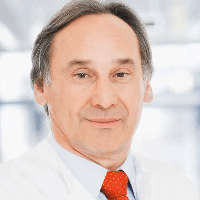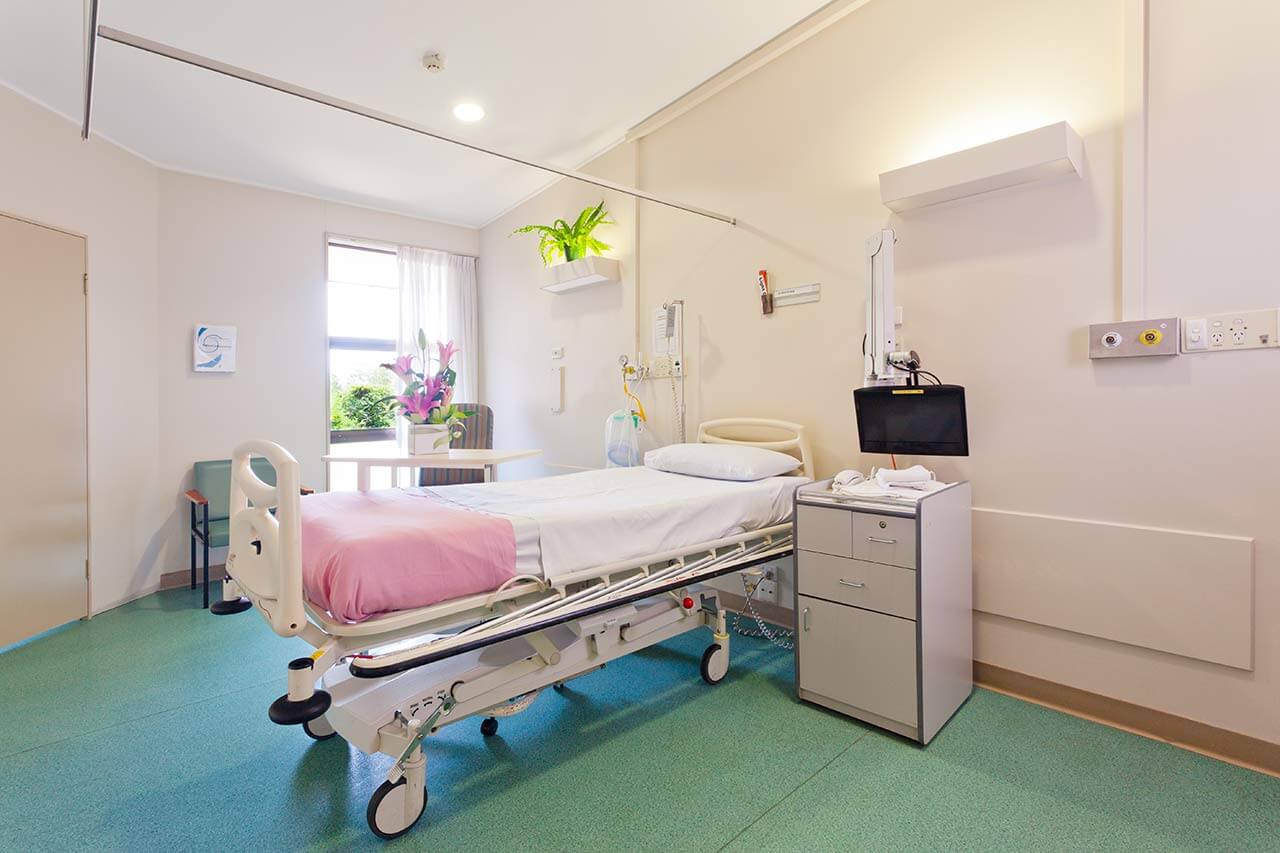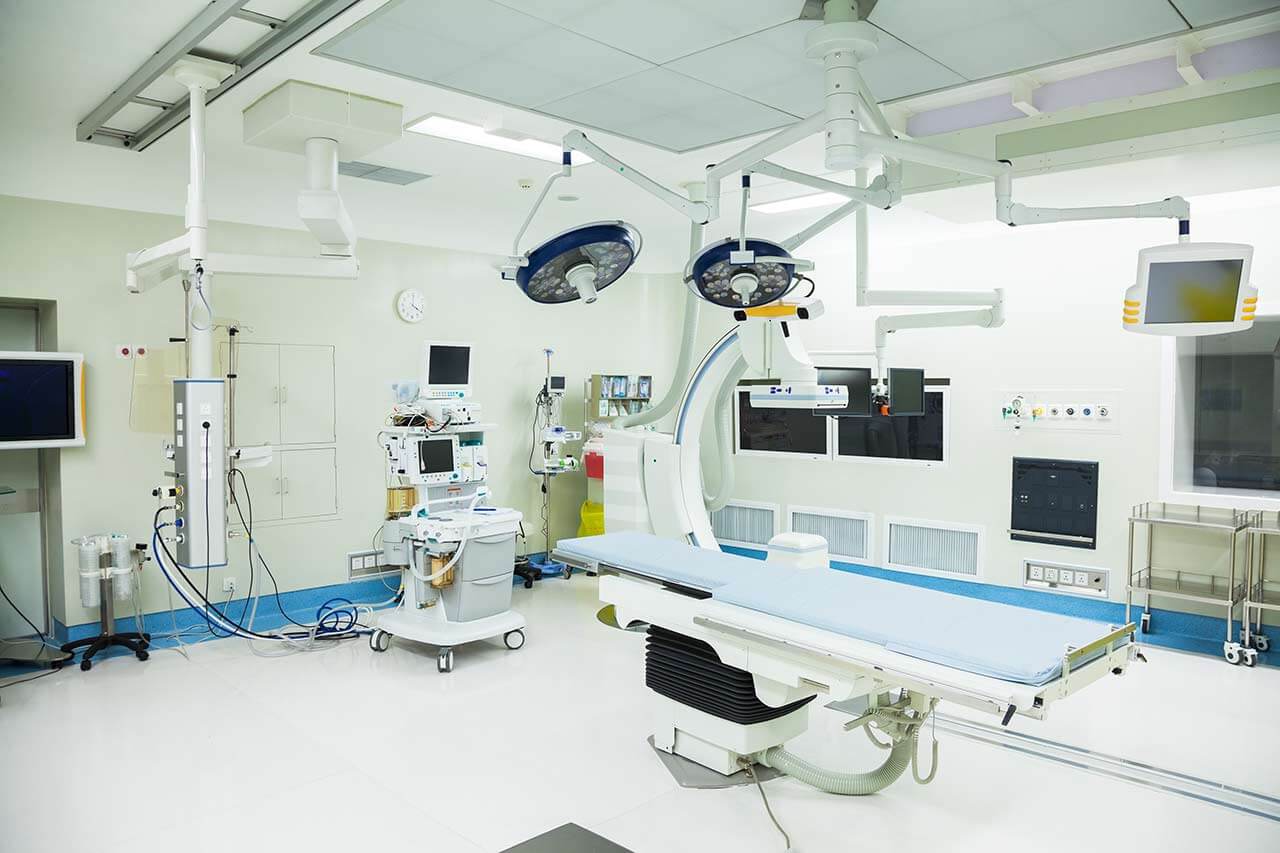
The program includes:
- Initial presentation in the clinic
- case history collection
- general clinical examination
- laboratory tests:
- complete blood count
- general urine analysis
- biochemical analysis of blood
- indicators of inflammation
- indicators blood coagulation
- X-Ray/MRI scanners
- preoperative care
- minimally invasive surgery of achilles tendon
- symptomatic treatment
- control examinations
- physiotherapeutic procedures
- orthopedic appliances
- the cost of essential medicines and materials
- nursing services
- full hospital accommodation
- explanation of future recommendations
Required documents
- Medical records
- MRI scan (if available)
Service
You may also book:
 BookingHealth Price from:
BookingHealth Price from:
About the department
The Department of Adult and Pediatric Orthopedics, Traumatology, Sports Medicine at the Hospital Bogenhausen Munich provides the full range of diagnostic and therapeutic services for the patients with musculoskeletal injuries and diseases, including sports injuries. The department provides treatment to both adults and children. In the field of pediatric orthopedics, the focus is on the treatment of hip dysplasia, clubfoot correction, as well as on the treatment of fractures and other injuries in children. The department is distinguished by its exceptional experience in the field of knee, hip and shoulder replacement surgery. In addition, the department provides effective treatment for shoulder, elbow and ankle diseases, performs surgery for the treatment of spinal diseases and interventions for the correction of foot deformities. The department is certified as the Trauma Center by the German Trauma Society (DGU). The department's doctors annually admit more than 4,500 inpatients. The main goal of all the employees of the medical facility is to eliminate pain and movement disorders, which worsen the patient's quality of life. The department is headed by Dr. med. Ludwig Seebauer.
The department's traumatologists specialize in the treatment of musculoskeletal injuries of any severity, ranging from simple fractures to serious multiple injuries. The specialists have at their disposal state-of-the-art equipment and strictly adhere to clinical protocols, which allows them to provide urgent and highly effective care. The patients are admitted around the clock, and, if required, doctors from the related medical disciplines can be involved in the therapeutic process. The department also admits young patients with injuries. The presence of a helipad in the hospital makes it possible to deliver a patient for treatment as soon as possible. After a clinical examination and receiving the diagnostic results, the specialists choose the optimal treatment tactics. Conservative treatment involves the use of modern plaster casts and dressings, while the treatment of severe injuries requires surgical interventions. In most cases, the surgeons perform sparing minimally invasive surgery, during which they make only a few small skin incisions. Such an approach helps alleviate postoperative pain and quickly recover the patient.
The department is the Maximum Care Joint Replacement Center and provides patients with high-quality medical services in this area. At the initial stages of arthrosis, the doctors often manage to improve the patient's health and restore mobility with the help of pain therapy and physical therapy. If the joint is severely damaged, the only effective treatment option is partial or total joint replacement surgery. It should be noted that the Chief Physician of the department, Dr. med. Ludwig Seebauer, enjoys an international reputation in the field of shoulder replacement surgery and also took part in the development of modern shoulder endoprostheses. The department performs more than 400 shoulder replacement procedures every year. The department's specialists carefully select the best type of prosthesis for the patient, which will restore mobility. Only high-quality prostheses with a long service life are used in clinical practice. Joint replacement surgery is performed using minimally invasive techniques, which excludes trauma to healthy tissues. The competence of the department's orthopedists also includes revision interventions to replace previously implanted endoprostheses. In addition to shoulder replacement surgery, the department's specialists successfully perform knee and hip replacement surgery.
Surgical treatment of spinal pathologies is an integral part of work of the department's doctors. The specialists mostly deal with the treatment of vertebral fractures, including osteoporotic fractures, spinal stenosis, spondylolisthesis, intervertebral joint arthrosis, osteochondrosis, osteoporosis and other pathologies. The medical facility maintains close cooperation with neurosurgeons in this field. To ensure maximum safety during spinal surgery, the operation is carefully planned using computed tomography. When performing the intervention, the surgeons use intraoperative monitoring, modern surgical microscopes and other devices to prevent damage to vital anatomical structures. With appropriate indications, the doctors use sparing surgical techniques.
In the field of pediatric orthopedics, the key focus of doctors is on the diagnostics and treatment of hip dysplasia. Pathology is one of the common congenital defects in children. Ultrasonography is usually sufficient to make a diagnosis. With the timely treatment, the specialists manage to completely cure the pathology, but the lack of proper treatment in early childhood can lead to irreversible pathological changes. In most cases, to correct congenital defects, pediatric orthopedists use special splints and other assistive devices to prevent hip dislocation and the development of other complications. In complex clinical cases, the doctors use a plaster cast (the duration of treatment is about 3 weeks).
The department's range of medical services includes:
- Diagnostics and treatment of musculoskeletal injuries, including multiple injuries in adults and children
- Diagnostics and treatment of arthrosis, including shoulder, knee and hip replacement surgery
- Diagnostics and treatment of sports shoulder injuries (for example, shoulder dislocation, shoulder instability due to the injury)
- Diagnostics and treatment of shoulder impingement syndrome
- Diagnostics and treatment of rotator cuff tear
- Diagnostics and treatment of meniscal tears and traumatic meniscal injuries
- Diagnostics and treatment of cruciate ligament tears
- Diagnostics and treatment of hip impingement syndrome
- Diagnostics and treatment of ankle injuries, deformities and diseases
- Diagnostics and treatment of elbow instability, elbow arthrosis, tennis elbow and golfer's elbow
- Diagnostics and treatment of foot diseases and deformities (hallux valgus, hallux rigidus, Morton's neuroma, etc.)
- Diagnostics and treatment of spinal diseases
- Vertebral fractures, including osteoporotic ones
- Spinal stenosis
- Spondylolisthesis
- Intervertebral joint arthrosis and osteochondrosis
- Spondyloarthrosis
- Scoliosis
- Diagnostics and treatment of orthopedic diseases in children (focus on the treatment of hip dysplasia and clubfoot)
- Diagnostics and treatment of other musculoskeletal injuries and diseases
Curriculum vitae
Dr. med. Ludwig Seebauer is the Head of the Department of Adult and Pediatric Orthopedics, Traumatology, Sports Medicine at the Hospital Bogenhausen Munich. Until March 2002, the specialist held the position of Senior Physician. The priority areas of the doctor's clinical activities include the treatment of sports injuries, the performance of primary hip and knee replacement surgery, as well as revision interventions. In addition, conservative and surgical treatment of shoulder diseases is of particular interest to Dr. Ludwig Seebauer.
Dr. Seebauer is a Founding Member of the German Society of Shoulder and Elbow Surgery (DVSE). The doctor is also a Member of the German Society of Orthopedic Surgery (DGOOC), the American Academy of Orthopaedic Surgeons (AAOS).
Photo of the doctor: (c) München Klinik Bogenhausen
About hospital
According to the reputable Focus magazine, the Hospital Bogenhausen Munich ranks among the ten best medical centers in Bavaria and among the top 50 medical facilities in Germany!
The medical facility is the Academic Hospital of Ludwig Maximilian University of Munich. The modern hospital with the highest level of services annually provides treatment to more than 85,000 patients with clinical cases of varying severity. With 1,000 beds, the hospital is the largest medical complex in the region. It provides both inpatient and outpatient treatment. In addition, the hospital has a 24-hour emergency service. The hospital's medical team consisting of highly qualified doctors and nursing staff focuses on tailored medical care, since they are convinced that every patient and his clinical case is unique. All employees of the hospital strive not only to provide the most effective treatment to the patient, but also to make his hospital stay as comfortable as possible. The work of doctors is based on respect and humane attitude towards their patients.
The hospital includes 18 specialized departments. Each department is responsible for the treatment of a particular group of diseases. The hospital is distinguished by outstanding successes in the treatment of diseases of the cardiovascular system, lungs and airways, gastrointestinal tract, musculoskeletal system, nervous system and metabolic disorders. Of particular interest is the treatment of cancers, which is provided on the basis of the Cancer Center certified in accordance with the standards of the German Cancer Society. The doctors of the hospital have a large arsenal of innovative treatment methods available only in the leading medical centers in Europe.
The high level of medical care is confirmed by the prestigious certificates of professional german medical societies. These are certificates of the German Cancer Society in the treatment of colon, pancreatic and esophageal cancers, a certificate of the German Cardiac Society, a certificate of the German Trauma Society, a certificate of the German Stroke Society and others.
The hospital has excellent conditions for the provision of comprehensive medical care. Long clinical experience of doctors in combination with high-tech medical equipment allows the specialist to work miracles, curing severe diseases, which doctors from other hospitals cannot cope with. The specialists of the hospital take care of both the physical health of patients and their emotional state, devoting enough time to personal communication. The efforts of the medical team are aimed at providing the patient with the most effective treatment and at completу cure of pathology, if possible.
Photo: (с) depositphotos
Accommodation in hospital
Patients rooms
The patients of the Hospital Bogenhausen Munich live in comfortable and cozy rooms with light colors. The hospital offers accommodation in single and double patient rooms. Each patient room has an ensuite bathroom with shower and toilet. The hospital also has patient rooms specially equipped for disabled people. The standard patient rooms include an automatically adjustable bed, a bedside table, a wardrobe, a table and chairs for receiving visitors. The patient rooms have Wi-Fi.
The hospital also offers enhanced-comfort patient rooms with a safe, a mini fridge and upholstered furniture.
The hospital has a library with many interesting books, magazines, CDs and DVDs. For the convenience of patients, the hospital also houses a small shop, a hairdresser and a cafe on its territory.
Meals and Menus
The patient and the accompanying person are offered tasty and healthy three meals a day. The diet is quite varied. Only fresh and high-quality products are used when cooking. Breakfast and dinner are usually served buffet style, while for lunch one can choose from three menus, including a dietary one.
If you are on a specific diet for some reason, you will be offered an individual menu. Please inform the medical staff about your dietary preferences prior to the treatment.
Further details
Standard rooms include:
Religion
The religious services are available upon request.
Accompanying person
During the inpatient program, the accompanying person can live with the patient in a patient room or a hotel of his choice. Our managers will help you choose the most suitable option.
Hotel
During the outpatient program, the patient can stay at the hotel of his choice. Our managers will help you choose the most suitable option.




